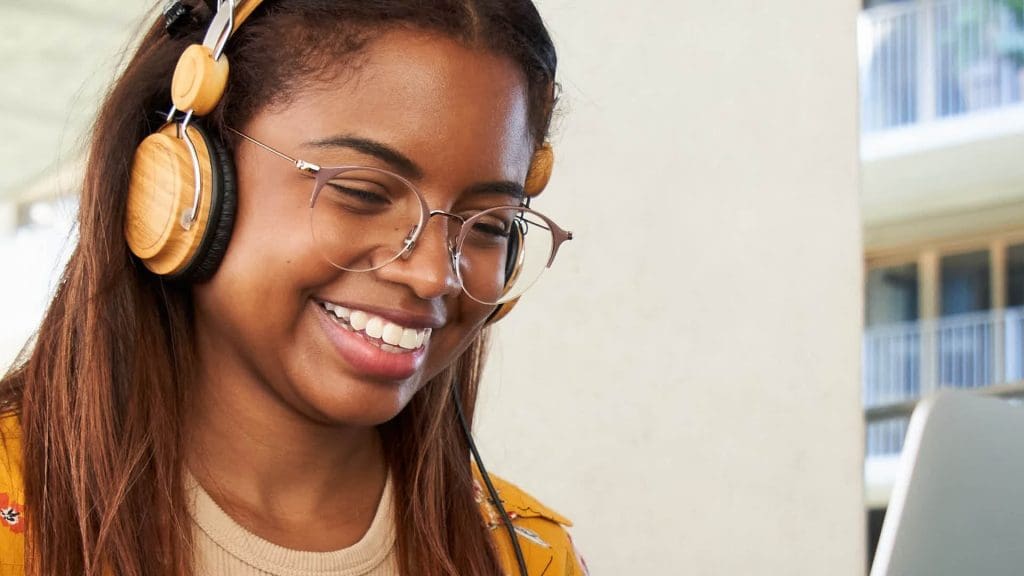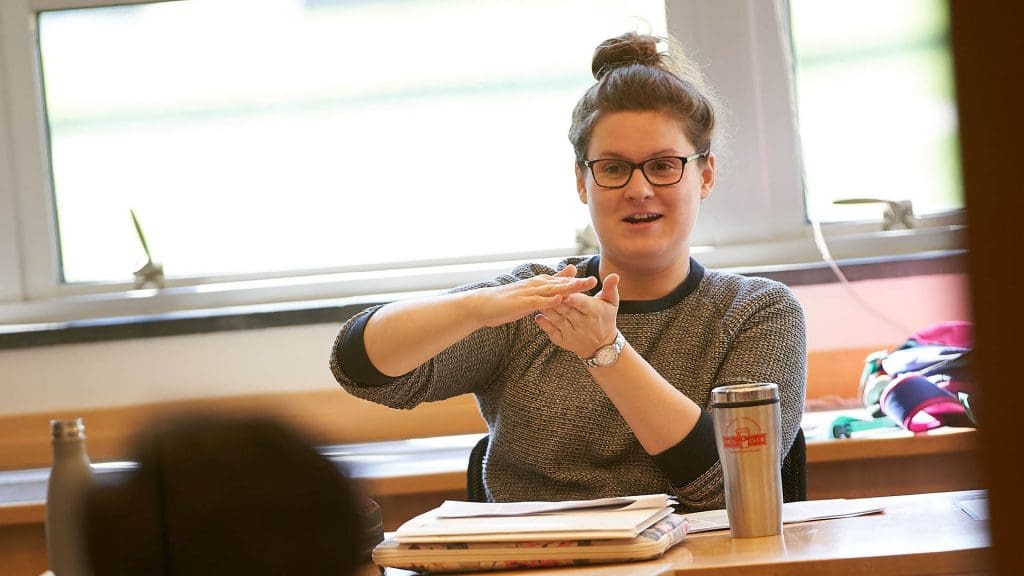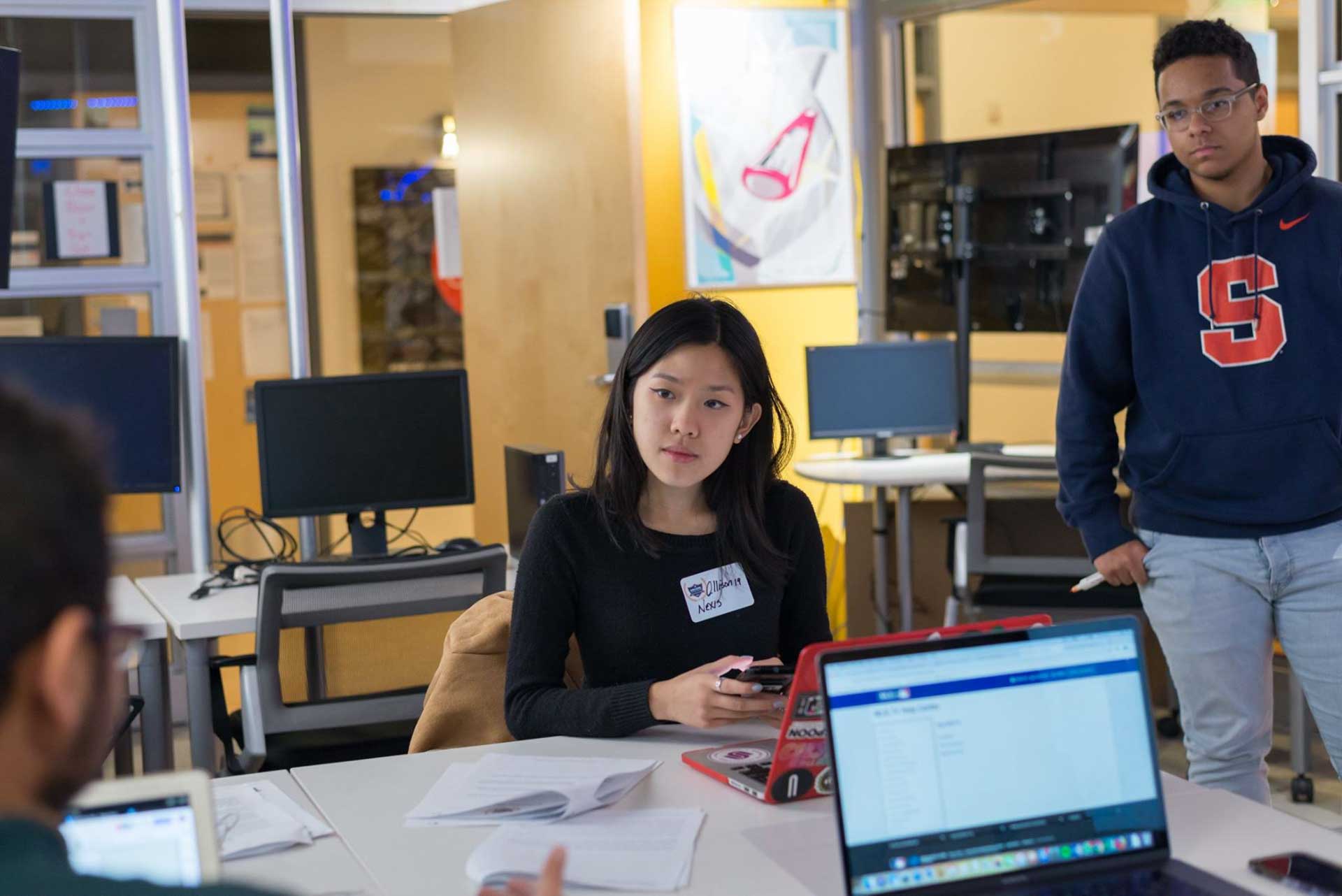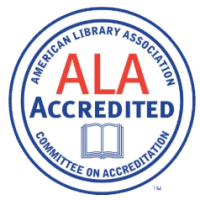Earn your school library master’s degree online.
With a degree in school library media, you’ll be prepared to meet the needs of students and educators, supporting lifelong learning across all age groups, and addressing critical topics like digital literacy, information equity, and how to identify misinformation, prioritize privacy and promote healthy use of social media. Our online degree prepares graduates for certification as school library media specialists. It fulfills a pathway to New York Department of Education certification and may meet the requirements for other states.
- Study with our esteemed faculty in a convenient online format.
- Take a uniquely tech-driven and human-centered approach to school librarianship.
- Master a broad range of multimedia to help people use information both effectively and efficiently.
- Focus on information justice and equity, engagement, and technology use in your community.
- No GRE required.
Quick Info
Choose from 4 cohort start dates.
Next term starts Spring 2025.
12 Courses / 36 Total Credit Hours
Complete in as little as 18 months
Also available as an on-campus program.
What can I do with a master’s in school library media?
Tailored to New York State Department of Education requirements and combined with 100 hours of fieldwork, our program prepares graduates to take certification exams and support students, educators, and school administrators alike.
SAMPLE JOB TITLES
- Youth Services Librarian
- Children’s Librarian
- Youth Services Coodinator
- Teen Services Librarian
- Young and Emerging Adult Librarian
- Children’s Reference Librarian
We’re a top-ranked
school library program
US News & World Report
2023 Placement Rate
Ranking in Digital Librarianship
US News & World Report
Courses & Curriculum
Our LIS: School Media degree program is 36 credits, and is typically completed within 2 years. The program prepares you for a career as a school librarian and incorporates preparation for New York Department of Education certification into the curriculum.
Introductory Course – 3 Credits
Information Resource and Service Courses – 9 credits
Management Course – 3 credits
School Media Specific Coursework – 15 Credits
Electives – 3 credits
Exit requirement
OR
Fieldwork
School media students must complete a total of 100 (non-credit) hours of fieldwork in elementary and secondary school libraries before their first practicum experience. A minimum of 15 hours must be with students with disabilities.
Additional Requirements
Professional Pathways
The MSLIS program strides to cultivate leaders in the library and information profession who will become implementers and advocates for information justice and equity, community engagement, and technology use in their communities of practice. It is designed to prepare library and information professionals with a broad range of knowledge and skills needed for exemplary practice and leadership in the library and information profession.
Get Certified.
For those who have already earned an ALA-accredited LIS degree, our Certificate of Advanced Study in School Media is also available as a standalone program. Through 21 credits of graduate coursework, you’ll be prepared to take the New York State certification exams.


Expand Your Network.
No matter where you live, you’ll have the support of our community of expert faculty, passionate students and hardworking alumni. You’ll experience one-on-one sessions with professors, internship opportunities that give you hands-on work in the field and access to networking events with connections to our worldwide iSchool alumni network.


Grow Your Potential.
to career support staff
you access to
mentoring and jobs




Offered online since our MLIS program has been accredited by the American Library Association (ALA) since 1928. We currently hold continued accreditation status through 2030.

